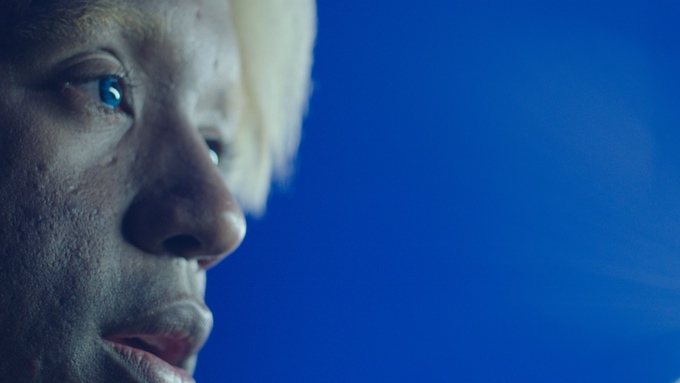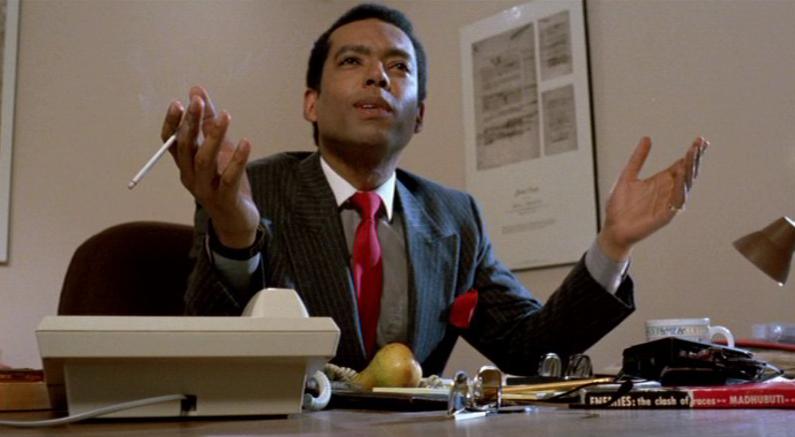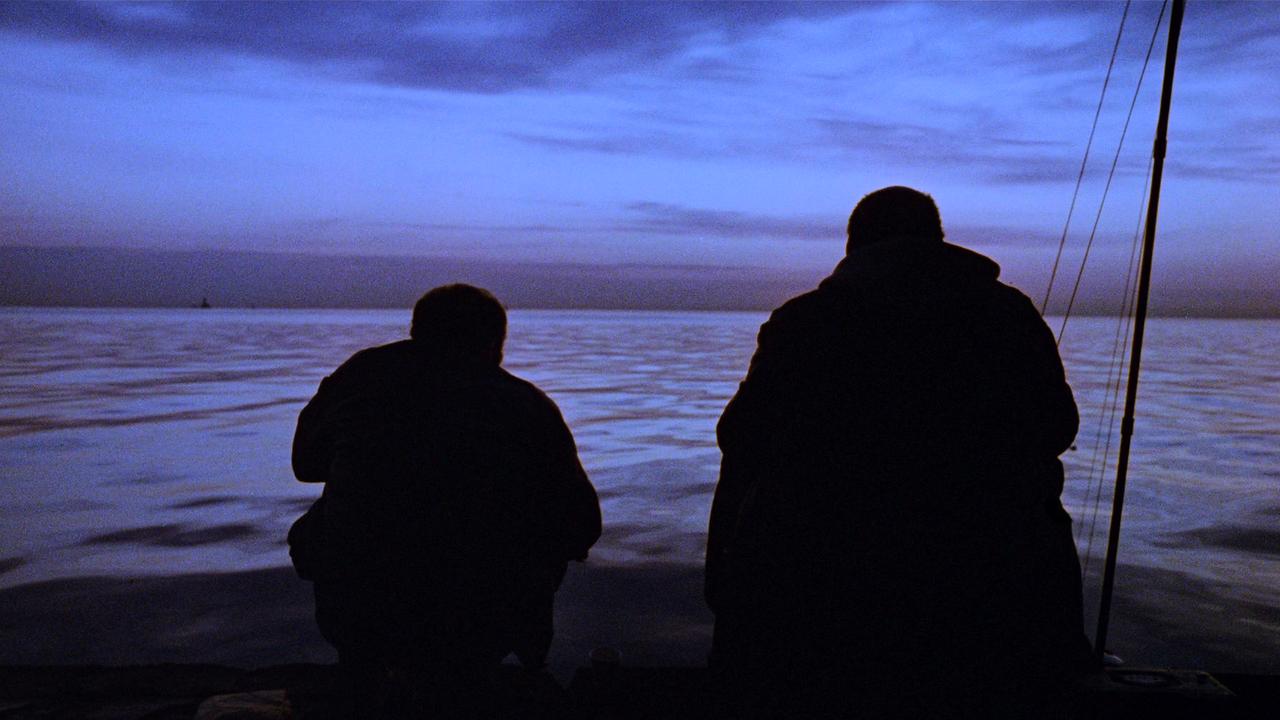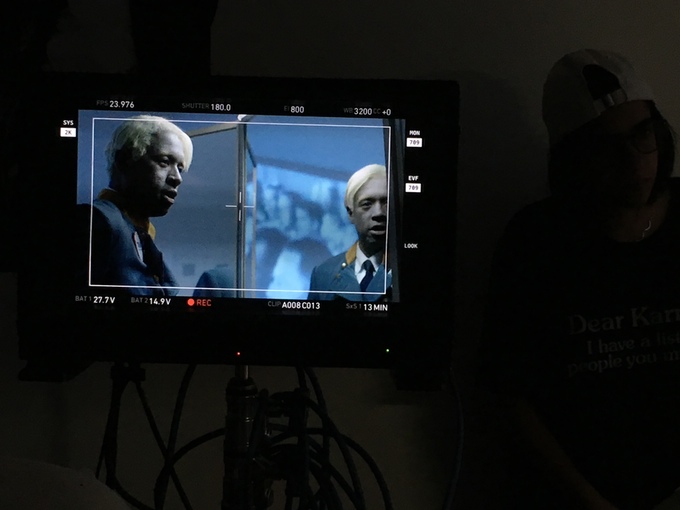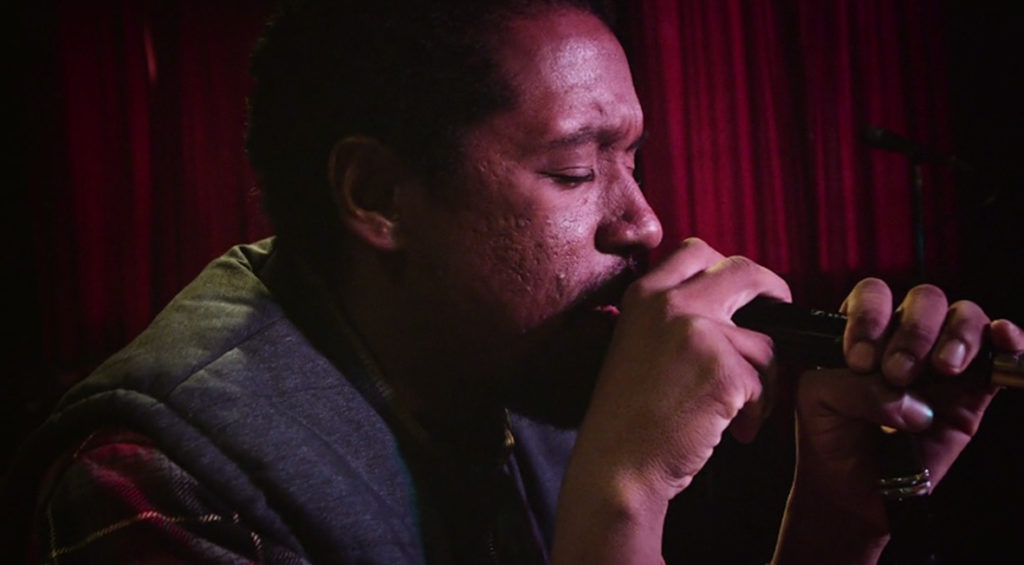
five from the fire:
MTUME GANT
Joining us for this installment of The Pink Smoke's notorious thought experiment, we welcome filmmaker, actor and emcee Mtume Gant. After appearing in films and tv shows such as Hurricane Streets, Carlito's Way: Rise to Power and HBO's Oz, Gant has recently moved behind the camera: his award-winning first film, Spit, played in festivals around the world and his follow-up, White Face, is nearing the completion of its crowd-funding campaign.
To get involved with kick-starting White Face, click {HERE}.
On to the game: a storage facility houses the collected works of five filmmakers. A raging fire breaks out and our guest has just enough time to save exactly five prints. All of the other films will be entirely lost to history. Cinders. Ashes. Soot and embers. Which five prints will they save? They can pick five films from a single filmmaker or one from each artist or anything in between. Will they be selfish and refuse to think of an imperiled work's place in cinema history? Or will they weigh each film's cultural value against its personal meaning to him? Remember: they don't have a lot of time to react - the place is blazing and they've gotta go with their gut reaction...
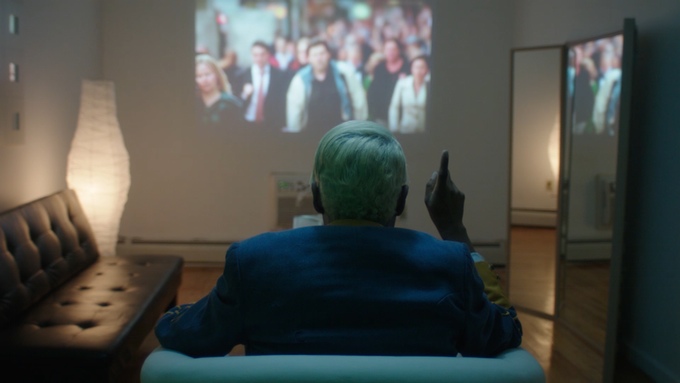
~ MTUME GANT ~
~ interviewed by christopher funderburg ~
THE PINK SMOKE: Ok, the set-up: the complete filmographies of five directors are stored in a burning warehouse.
You have just enough time to save five films. But you gotta act quick. Your five directors are:

MTUME GANT: I'll say this: three of them were really easy. Three of them I could grab really easy and the last two were really hard. And I tired to do it like, to be honest about what I would really do. In the moment, what would I really do?
PS: So what are the three you would absolutely grab?
MG: Chameleon Street, Thief and The Mirror - that's, like, quick.
PS: Those are three very different films, though!
MG: They are. They're extremely different. They're extremely different and I mean, I have personal connections to each of those three films but I also think they're important and significant films. Important and significant in very different ways. So I couldn't leave Chameleon Street - it's had a hard life as it is, I couldn't let it burn! Into oblivion! The film is so amazing and part of its story is that it has been so suppressed.
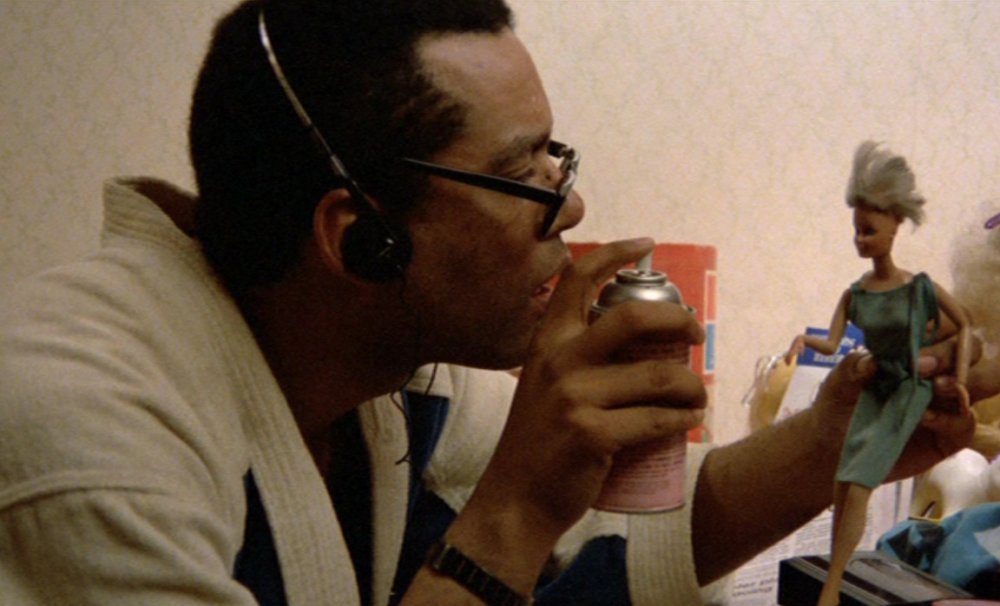
PS: Yeah, of all the masterpieces of cinema, I'd say that is the one that is most shockingly unknown. To me, if you made people sit down and watch 30 movies to understand cinema, that's gotta be on the list.
MG: Yeah - I agree. I was in France and I made a friend watch it and it became one of his favorite films. He absolutely adores it. Anybody I've ever turned on to it is almost shocked they've never heard of it and then basically they think there's something wrong with them and I go "no, it's simply been a case of really, really bad suppression." So to let that go in a fire - I feel like I'd be doing a disservice to humanity! I don't want Wendell's legacy to end that way [laughs.]
PS: You have a background as an actor and emcee - have you ever met Wendell Harris, have you come across him in your professional life?
MG: No, the only... I've had one digital online moment and one "almost." I actually wrote a tweet like five or six years ago when Wendell was active on twitter and said "Chameleon Street needs to be in the Criterion Collection." And he retweeted it back and we got to have a little back forth that lasted for actually a couple of days. It was before I went to make my first film and I was a still acting a little bit - I was in a play then - and it was cool to get to have that before he went off twitter. And then a couple years later, a good friend of mine, Shani Peters set up a screening of Chameleon Street in Detroit, where it had never been screened before. And that's where Harris is from and it had never been screened there. She got him to come and she wanted me to write a piece for that screening, but the academics involved didn't want me in there, so that's another story.
PS: I tried to screen it once as part of a con artists series when I was still programming a repertory theater and I couldn't find a print anywhere and Harris seemed to have authorized a few screening from a DigiBeta or something like that, but I just couldn't get ahold of him. Not being able to screen that movie was one of the major disappointments of my professional career.
MG: I don't know the in's and out's of it, but I do know that sometimes he's very active and he's very find-able and sometimes he's not. And, you know, I don't know what it is - I'm sure him being hard to find is a myriad of things. I imagine his life in the film world has probably made him skittish.
PS: Have you ever heard about the follow-up he was trying to get made?
MG: I did - there was rumors that it was done. You know, he started a kickstarter campaign two years ago.
PS: I had no idea.
MG: No one did! I only knew about it because Tambay Obenson, who is the creator of Shadow and Act, is a big supporter of Chameleon Street. He interviewed Wendell a few years ago, did a radio interview with him and he posted it - it didn't really go anywhere. But I think it was for Arbiter Roswell. I always read about it, but never heard anything past that. And it was an interesting film for him to do. The film I was most intrigued by was the one he was supposedly doing with Spike Lee, possibly.
PS: Which one, is that Negropolis?
MG: Yeah.
PS: That one sounds crazy!
MG: Yeah! I was ready for that. When I heard he was supposed to do it with Spike Lee, I was just like "there's no way that's ever gonna work." I could've told you that meeting was not gonna be a good one.
PS: As far as personal connections to that film. I know you're putting White Face together now - is Chameleon Street something you'd see as an influence on your new film or just a film that's personally important to you?
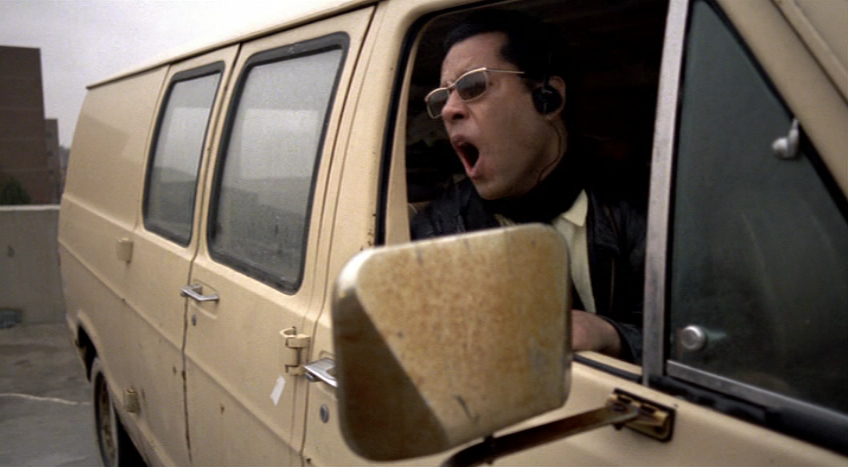
MG: It's an influence on my life. The thing about Chameleon Street that I think is so significant for a certain amount of black people, is that black imagery in cinema, imagery of black people in cinema, is not very diverse. It isn't. Even the good stuff. Even the good stuff that takes place in the South or outside of a city, they're still full of images that exist within the familiar plane. Chameleon Street was just so different in that - I'm from the city, right? But I was never a "street" person? But I was streetwise. I was intelligent in those situations, like Street - but the character loves old French films. You know? He dresses with a certain style - it showed the complexity of an African American person that I understood, that I had never seen before in a film. And also the way he spoke, the language he used - and the language Harris used to tell the story felt so authentic to me. So, it is an influence. When I look it in terms of White Face, probably yes it is an influence because the idea of "identity" - but he plays with it far differently than I do in my film. They're probably kissing cousins. And I realized it more as I create on it, that yeah there's a definite link here.
PS: Let's move on to two films, either one is on an opposite end of a pole from Chameleon Street - Thief and The Mirror .
MG: You know Thief is this film - and I'll issue a disclaimer that I'm not a big Michael Mann fan, he's got some films that are fun and some that are not very good, but outside of Thief I'm not a huge fan. I didn't see Thief for a very long time. My father always talked about it, "oh Thief is so good." And I watched it for the first time when I was a teenager and didn't even really remember it. Like I watched it too early, you know? I watched it again when I was about 30 years old and this film to me - I don't know if it's an accident - is one of the greatest comments on capitalism that I've ever seen. It is! And I'd love to meet Michael Mann and ask him. It's this great conversation about personal sovereignty and the American Dream. In that it's impossible [laughs.] It's impossible. And that's what I respect about it. It's so heavy-handed; you're watching it the end of the film, you're waiting for him to go back to his woman, to go back to Tuesday Weld. But there's this shootout at the end and he just walks off. And you're like "wait, but that's the end?"
PS: Yeah.
MG: And it's such a ballsy definitive ending that I'm just like "wow." That's a heavy statement. And he packed it all through this genre film. James Caan is also really good, he gives his best performance. Very nuanced. And playing a guy I kinda relate to. I've been in that moment where you look at something and go "I can never have any real freedom. So I have to just blow it all up and just go away."
PS: That's definitely a recurring Michael Mann theme: "the impossibility of true individuals to set comfortably in society."
MG: I agree with that.
PS: That you're going to have somebody who, specifically people who have developed their own philosophy and thought serious about how they conduct themselves in the world, that they're going to be in conflict with the world around them, almost inevitably. And a lot of times he uses criminals to express the idea - but I've just described the main character in virtually every Michael Mann movie.
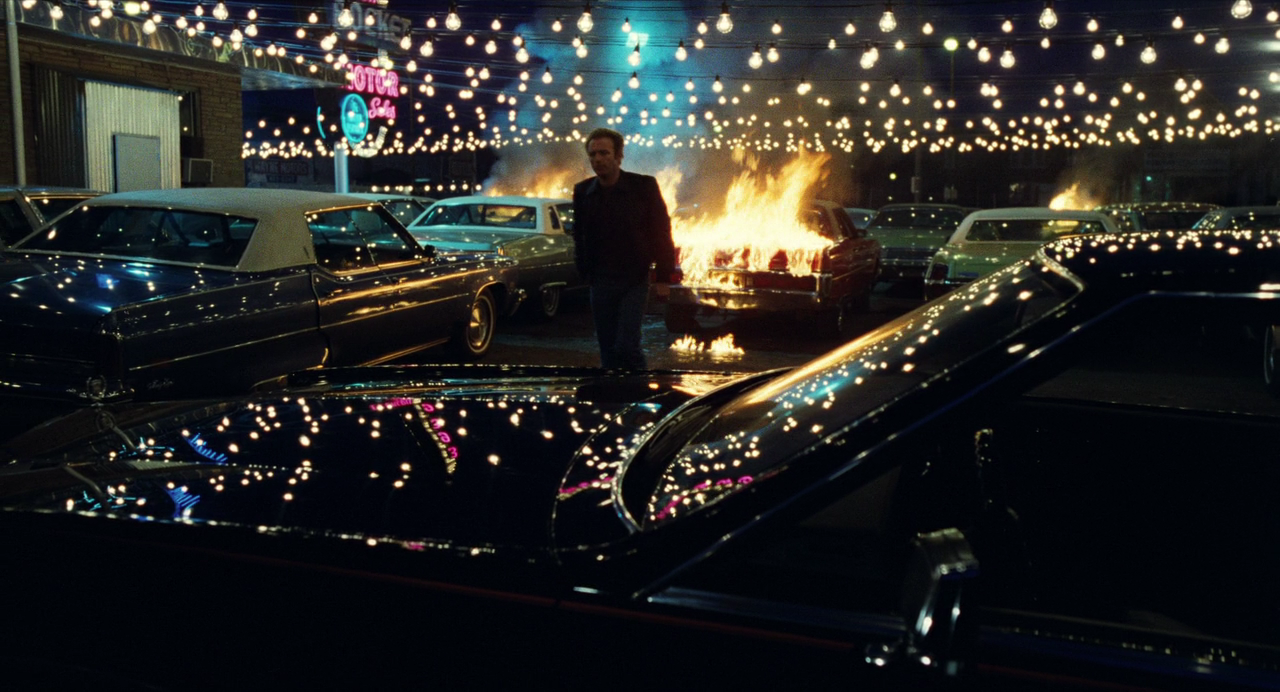
MG: That is very true. I think with James Caan's character, you think he's such an on-point person throughout the movie, but you realize he's actually an extremely naive individual. He's extremely naive. He's almost juvenile in how naive he is. You realize that that's what being that kind of dreamer is, in this society. He wants to be sovereign, but then he wants to have everything, to have this picture-book existence that's so Americana. It's amazing.
PS: It's simultaneously buying into it while thinking you've rejected it.
MG: Exactly. "I'm the king of my own, I don't do business partners" all these things he says. It's amazing. I feel like it mirrors so many people I've seen. Statements like "well, I'm going to work within the system but I'll eventually get out of it." Oh, really? [laughs.] No, Robert Proskey's gonna be looking over you and telling you what the deal is and eventually at some point they're gonna let. you. know.
PS: The machine is set up and you're just a piece. You don't get to cut to the front of the line, you don't get to be on top after starting on the bottom, it just doesn't work like that. Or what you're saying, you have to have a certain amount of juvenile naivety to even consider that.
MG: Exactly, exactly. He uses a criminal to show that, but I think it's such a basic, American thing. Also, his decisions as a director are so rare, things you won't see in a lot of movies. They'll try to find a way to make it look like he won. But Caan doesn't win. I mean, he kills the guy but what does he win? He loses everything.
PS: All you can do is blow it up. At the end of the day, all you can do is blow it up. And what is "it?" It is yourself to a major extent, too. This makes me interested to move on to The Mirror. With your first two selections, we've been talking a lot about class, specifically class in America and class mobility - The Mirror, my immediate impression is that it couldn't be more divorced from those concerns. It's a dyspeptic Russian transcendental high art film that seems disconnected from everything we've been discussing - what's your connection to it?
MG: My connections exist more on an aesthetic level. I feel like Tarkovsky rewrote the book with that one. I avoided The Mirror for a bit, it was the last Tarkovsky film I watched. When I got into Tarkovsky, I wasn't smart enough to watch it. Like avoiding Ulysses or Finnegan's Wake - you know, "I don't wanna read that."
PS: I always feel that way about Moby Dick - if you read Moby Dick too early, what's amazing about it is invisible.
MG: Right, exactly. So then I watched it - I've seen it three times - and the first time I watched it, I didn't understand it but I felt it. The emotional motifs. When I watch that film and one of the reasons I like Tarkovsky so much is that it becomes an experience of the subconscious to a degree. You're taking in the images, you're seeing the feeling, you're having the experience along with the characters - I'm affected in a way I can't totally explain, but I know the film is maneuvering me somehow. That's what I really respected about it. As I kept watching it, themes kept appearing to me that maybe are not even necessarily that deep - I think some of his other films hold more weight as far as their topics.
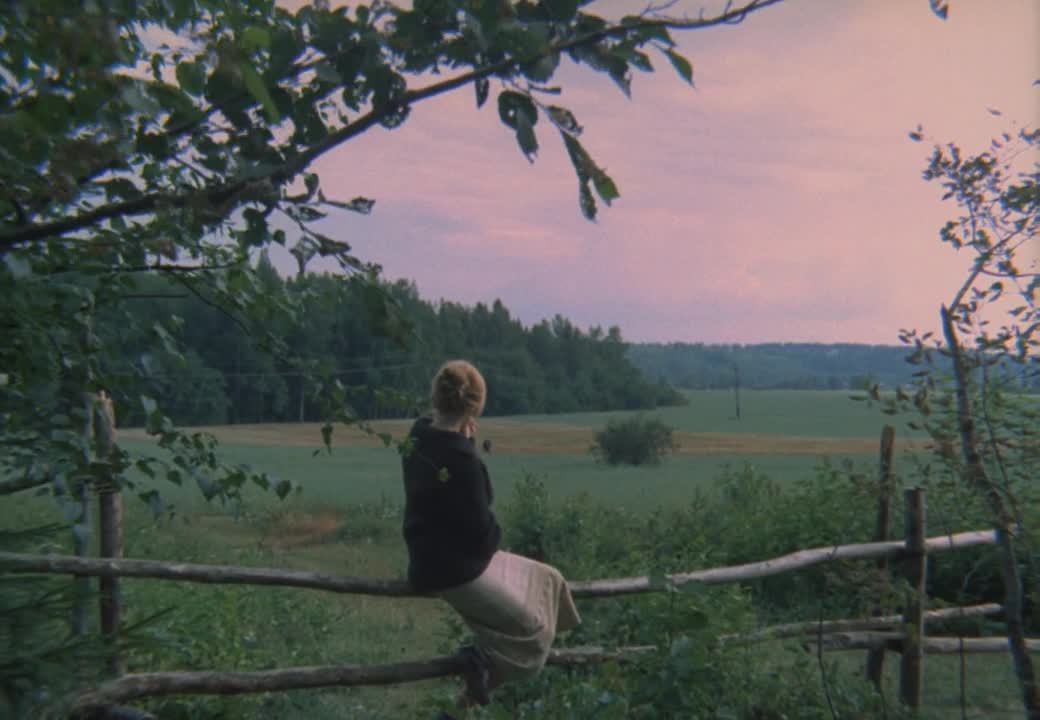
PS: I was going to ask because you said you're not a Michael Mann fan and Harris only has a single film: are you a Tarkovsky fan or is this another singular film for you?
MG: I'm a huge Tarkovsky fan. I'm a mega-Tarkovsky fan. He to me is... I respect people who really do them and he really did him, you know? He went out and he did him and he did it in a way that I really liked it. I like his spiritualism but I also like the subtle commentary about "nation" that he drops in there. Or maybe it's subtle to us but probably wasn't that subtle to the Soviets. But I'm a huge fan. I think the dude is incredible. It's almost like [affects pretentious voice] "oooh, I'm a Tarkovsky fan" but really the shit is just so good. Also I like the time he gave his actors. I like the camera staying on an actor. Don't move it. I like it. I think it's a good thing. I'm an actor. I come from an acting background. I'm not saying edits and cuts can't be played for acting, I do it too, it's good to experiment but he went into that bag and I feel like lifted his actors and gave them an opportunity to really expand. And to the audience, it gives you a different experience, you know? But you watch that film and you realize so many people have taken from The Mirror and all of his films, visually. "Hey guys, just to let you know, this didn't just happen, someone did all of it before you" and filmmakers now just kinda borrow it.
PS: There's a few filmmakers that visually, they just got there before everybody else. He's one of them - he discovered so much about how to use the frame in relationship to time, that he was there first. And The Mirror is definitely one of his most visually striking films. Let's move on to the last two slots: you have two filmmakers you haven't even touched on, one Chinese, one Japanese.
MG: Well, someone's getting lost. Sadly. I am a big Tarkovsky fan so I had to take another Tarkovsky. The funny thing about it is, as far as a second Tarkovsky, I think people are going to go "Really? You picked that movie?" But before that, from the other two filmmakers, I picked The 36th Chamber of Shaolin. First of all... Wu-Tang, man [laughs.] Wu-Tang! I mean, I'm a hip-hop head. It gave us Wu-Tang. At least the title - that and Shaolin vs. Wu-Tang, as the example. It's interesting, when I discovered it in the 90's, it was with the Master Killer title. I bought it up on 125th street, after the Wu-Tang album came out, I think two years after. I was like "this is so cool" and, you know, I'm very partial to Chinese cinema. I think Chinese cinema doesn't get enough credit in the West, to be honest with you. Japanese cinema in the West gets the credit that it well deserves, but I think Chinese cinema doesn't get the credit. They developed a visual language that I really respect as an actor - I think it's the acting. Bruce Lee is a phenomenal actor.
PS: I think if you made me pick my Top 10 favorite actresses, that Maggie Cheung is definitely on that list.
MG: Oh, me too! She's amazing. I'm sad she retired - she's one of the best actors of the last 30 years.
PS: Absolutely. And Gong Li I think is incredibly talented.
MG: Amazing, Gong Li is insanely talented.
PS: And she doesn't credit the she deserves because she's too beautiful! She'll never get the credit she deserves because people can't look past her appearance.
MG: I know - you see her and you're like "oh my God." But you watch Raise the Red Lantern and she's really good. She's really an amazing actress. Very subtle.
PS: You talk about performers - she's a really giving performer. To swing it back to Michael Mann, in Miami Vice she is so remarkable in her scenes with Colin Farrell. She gives him so much to play off of that I feel like you can see him becoming a great actor in that movie because he has a great co-star. You can see his mind working "oh she did something small that I need to respond to because her response means I can't say the line the way I thought I was going to. She caught my gaze that time, moved her head at that moment and I can't just say the line again the same way I did on the last take."
MG: She's always active! With Maggie Cheung, I was always mad she was never a bigger star in the West. She speaks fluent English - I was shocked she never took off. She's a great actress, she's had an amazing career. But with The 36th Chamber of Shaolin, it's a highlight of that genre, of that cinema. There are some films of that style that I like more, but with the Wu-Tang connection, if you want to talk about a film that influenced pop cultural in a real way, that's a film. That's a film right there. That's a something where you can quantifiably show this movie had an effect on the popular artistic culture of our world. If it didn't exist, there would be no Wu-Tang.
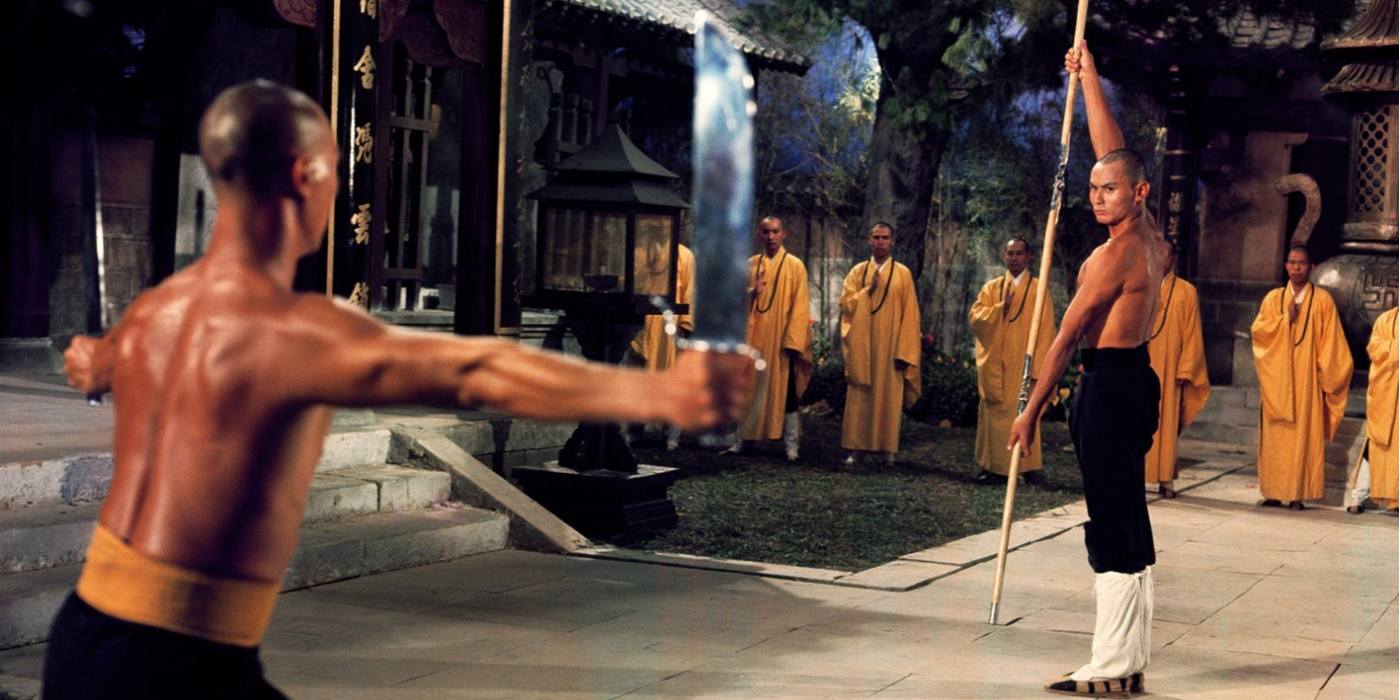
PS: It's funny to imagine what hip-hop would be without them, without their flavor and that Hong Kong wuxia pian flavor. I think the spiritual, philosophical bent of their music is an underrated influence on hip-hop culture.
MG: I agree. I've only seen two films by Fukasaku. I've seen Battle Royale and Shogun's Samurai. They're really cool, but I was never as affected by them. Personally. I need to watch Shogun's Samurai again because it really has been a long time. But I have big holes in my knowledge of Fukasaku and I need to see more. So probably he would get the uh... [laughs.] "Sorry, I haven't seen enough. I apologize for letting your work burn!"
PS: I like him quite a bit, but he's genre a director who in his time never quite got his due over here. Even now he's probably just known as "the Battle Royale guy." And he made so many films knowing where start with this question is hard.
MG: I picked Nostalghia at the end because I think there's about four Tarkovsky films that on any given day you could say is my favorite. I could say Nostalghia, The Mirror, Andrei Rublev and Stalker, for me personally. Those are my four. I was re-watching them and there's something about Nostalghia, the balance of the mystical with a striking comment of the social position of the artist, of a person who is an expatriate, that I find very, very, very well done by Tarkovsky in that film. It's so pointed and I really love the energy of that film. I feel like he found all his balance in that movie. And it's not the film people want to talk about. I never really hear that, but for me I'm like "This is incredible."
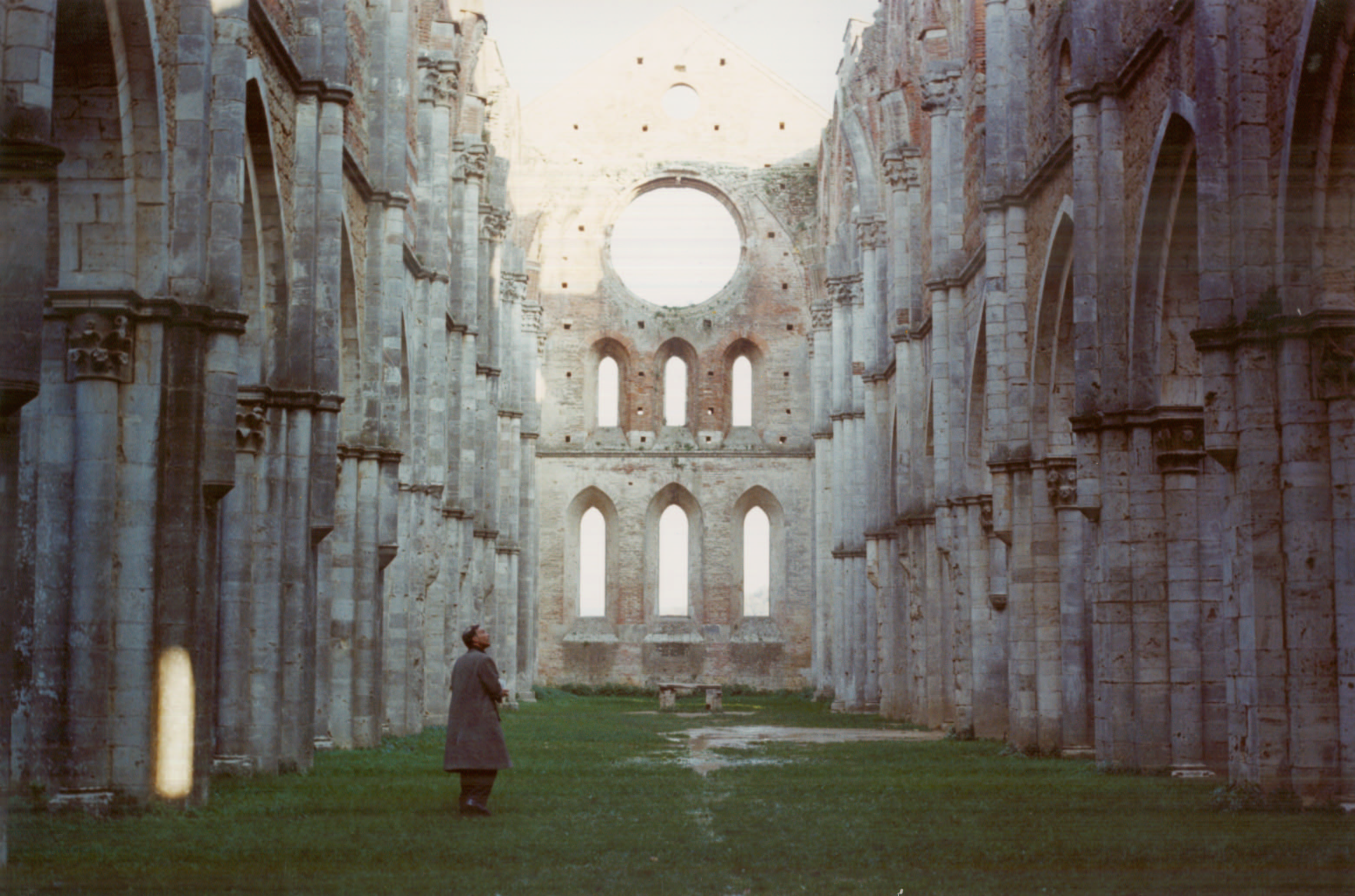
PS: He has so few films, I feel like all of them have passionate advocates, but you're right that it's not in the big three with Solaris, Stalker and Rublev. Those are the ones that get talked about. Let me ask you a final question: are there any films you regret leaving behind because they have a prominent cultural position, like Rublev, or a pop cultural status, like Heat?
MG: Heat is a fun movie. I can't lie: I see the holes in Heat but I can put it on and watch it. It's so much fun. That gun-fight has some of the great sound-recording I've ever heard.
PS: You know it was live sound?
MG: I do! I'm actually in L.A. right now near where he shot that downtown. It's absolutely incredible sound work. But losing Heat? That's a toughie. I remember Shogun's Samurai being really deep and I know Sonny Chiba is a big deal to dudes also. So I feel about that, putting Sonny Chiba through the burner! [laughs.]
PS: Are you familiar with Fukasaku's Battles without Honor and Humanity films? They're post-war yakuza movies.
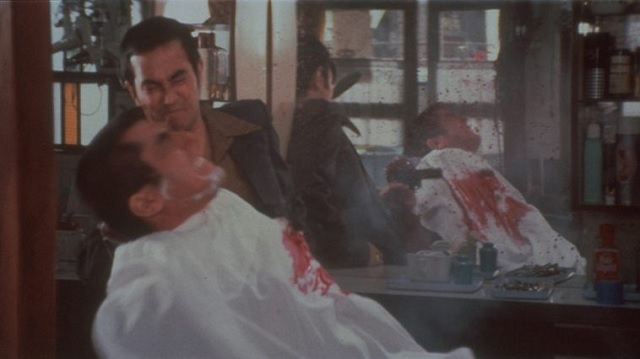
MG: I've never seen them.
PS: They're really interesting - and they're interesting in the context of what you were saying about Thief where they're a portrait of a specific economic climate. They're yakuza movies, but they're really about the emergence of the yakuza in the post-war economic climate of Japan, sort of the spiritual and economic conditions that led to that criminal underclass' creation - especially in relationship to the authoritarian/police situation in a post-Facist society. It's a seven-part series - sort of four original films and then a sequel series. Great filmmaking.
MG: Wow, I gotta check that out. I think genre films sometimes get a bad rap but if you're a real filmmaker, you take can a genre film anywhere in social commentary. The genre film is built for you to do that. You have the structures and then you can find where to weave everything in and people will follow you because they'll follow the structure. The guys that can do that, I have a ton of respect for.
PS: Have you ever been tempted to write a pure genre film, you have any script rattling around?
MG: You know, I do. It's funny... I really like suspense films. I grew up on noir and suspense, I watched all those films with my mom. I was raised on suspense and thriller films, we sat them and watched them all day. So I've very intrigued with it. I have an idea for something, but then I always worry "Am I serving the genre?" and then also "Am I saying enough as a filmmaker?" But definitely intrigued.
PS: So, I'll bring us to the wrap-up. The films you have chosen to save are:
Nostalghia
Thief
The Mirror
Chameleon Street
The 36th Chamber of Shaolin.
That's not a bad list, man. You could spend a few decades on those.
MG: You could. That's a good weekend retrospective!
PS: Thanks again for doing this with us.
MG: Thank you.
Some notable losses we didn't cover:
Drunken Master II, 8 Diagram Pole Fighter, Dirty Ho, Executioners from Shaolin, Vigilante with a Funky Hat, Black Lizard, Tora! Tora! Tora!, Yakuza Graveyard, The Gate of Youth, Ivan's Childhood, The Sacrifice, Solaris, The Last of the Mohicans, The Insider, Ali, Manhunter, Collateral.
To support Gant's newest film, White Face
click {HERE}.
~ AUGUST 12, 2016 ~
